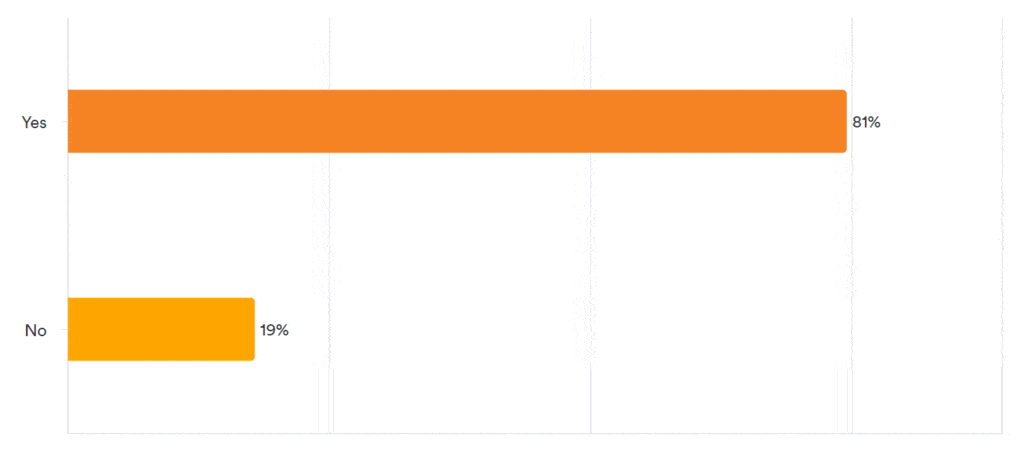According to the April LANDTHINK Pulse results, 81% of respondents said they would be undeterred by a property with a notorious reputation. To some buyers, what has happened in the past within the four walls of a house or on their land, especially a death, matters. Other buyers may have a more practical perspective and might be eager to take advantage of a discounted price, especially in a tight market. But could you live happily knowing someone had been murdered on your property?
Last month, the April Pulse asked: Would you buy a stigmatized property, such as the Murdaugh Moselle Farm?

According to the National Association of REALTORS® (NAR), a stigmatized property is “a property that has been psychologically impacted by an event which occurred, or was suspected to have occurred, on the property, such event being one that has no physical impact of any kind.” A stigmatized property is a house or land that has a bad reputation of the kind that might influence someone’s decision to purchase the property. This reputation may be due to a violent or traumatic event that occurred there in the past, a notorious former resident who may have lived there, or some other similar factor.
A great example of stigmatized property is Moselle Farm, the sprawling 1,700-acre estate in Islandton, South Carolina, owned by disgraced former attorney Alex Murdaugh. The farm and hunting lodge in Colleton County turned into a crime scene when Maggie and Paul Murdaugh were brutally shot and killed on the night of June 7, 2021. Alex Murdaugh was convicted of the crimes in March 2023 and was sentenced to life in prison. The estate features a farm, two miles of river frontage for freshwater fishing and kayaking, 12 run dog kennels, turkey and deer for on-site hunting, and a 5,275 square foot custom-built home newly constructed in 2011.
The property, boasting over 2.5 miles of river frontage, sold for $2.6 million, according to a deed. The farm was listed for $3.9 million and was under contract quickly. While it did sell for under asking, potential buyers were not scared off by gawkers or bad vibes. If you’re trying to sell a stigmatized property, the Murdaugh story offers some hope. The property has been rebranded as Cross Swamp Farm, a marketing trick to try to dispose itself of the name Moselle. The lesson? The stigma is real, but only for a while.
Stigmatized properties will sometimes be overlooked by buyers in their search because of their reputation. But not all stigma is created equal. While there many reasons that a property may become stigmatized, these are the most common:
- Haunted or paranormal activity stigma
- Murder or suicide stigma
- Public intrigue stigma (set of a well-known film or TV show)
- Criminal activity stigma
- Scene of a notable crime
- Debt stigma
- Former drug lab
- Major environmental issues
- Located near a registered sex offender (or former residence of a sex offender)
Stigmatized property goes beyond reputation alone. State laws and real estate best practices can affect how the stigma is handled during your purchase or sale. A real estate agent does not necessarily have to tell you about a property’s stigma. This is largely because disclosure laws are not entirely standardized across the country. While some federal laws apply- like a requirement to disclose lead paint- each state also has its own unique disclosure laws.
NAR states that their members should voluntarily disclose any facts which “could affect a reasonable purchaser’s decision to purchase”. It’s important to note that a seller or real estate agent cannot lie when asked about stigmatizing facts or else they would be liable for fraud. This means that potential buyers should ask about stigmas if it matters to them.
If a property is stigmatized for a reason that could pose a potential threat to buyers, such as a former drug lab or an environmentally stigmatized property, sellers are obligated to disclose this information. This is especially true if you have ever been compensated by a company because of your property’s environmental stigma. As a buyer, the main things to consider are: will the stigma bother you and to what extent, and will the stigma make it harder for you to sell when the time comes?
Tips for Agents Listing a Stigmatized Property
Understand the disclosure requirements in the state(s) you’re licensed in. Each state will have resources and legal guidance in place to ensure you’re practicing real estate according to state guidelines.
- Determine whether the information is fact or fiction. If the stigma is based on rumors or community perception, then there is no obligation to disclose.
- Ask yourself if knowing about the stigma would affect a reasonable person’s opinion of the value of the property. If so, then you’ll need to address it with your client.
- When working with stigmatized real estate, it’s important to know how to evaluate facts and when to disclose information during the transaction. Once you’ve done the research, you can have peace of mind knowing that you’ve provided accurate facts for your client to make the right decision when faced with stigmatized property.
Do you have a suggestion for next month’s Pulse question? Submit your question and we might choose yours!
This content may not be used or reproduced in any manner whatsoever, in part or in whole, without written permission of LANDTHINK. Use of this content without permission is a violation of federal copyright law. The articles, posts, comments, opinions and information provided by LANDTHINK are for informational and research purposes only and DOES NOT substitute or coincide with the advice of an attorney, accountant, real estate broker or any other licensed real estate professional. LANDTHINK strongly advises visitors and readers to seek their own professional guidance and advice related to buying, investing in or selling real estate.










Add Comment